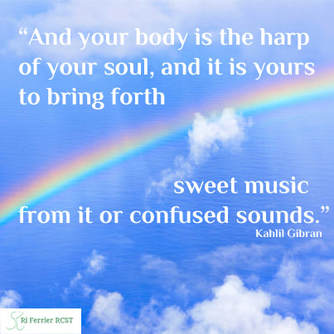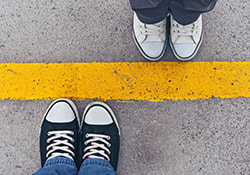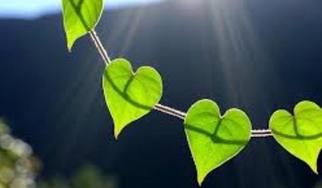 It seems to be the latest buzzword: mindfulness. Interestingly for me, this makes me think of a mind full of things, which in fact is polar opposite to what you are trying to achieve. I’m not sure ‘mindfulness’ was necessarily the best choice of words but the intent behind it is definitely sound. Mindfulness basically means paying more attention to the present moment – to your own thoughts and feelings, as well as to the world around you. It means being aware of where we are and what we’re doing, and not overly reactive or overwhelmed by what’s going on around us. I’d rather call it presence. But regardless of what we call it, it is a path to mental harmony and wellbeing. Let’s face it – it is incredibly easy to rush through life without stopping to notice much. There’s chores to do, money to earn, children to raise. The to-do list is never complete. And when there is space, we fill it with Facebook or Instagram or SnapChat or some other meaningless distraction. Do we actually know how we are? How we are feeling? Our fast paced technological lives make it easy for us to lose touch with the way our bodies are feeling and to end up living 'in our heads'. We become more caught up with thoughts as opposed to emotions and behaviour. The most important aspect of mindfulness/presence is reconnecting with our bodies and the sensations they experience. This means waking up to the sights, sounds, smells and tastes of the present moment. Human minds are easily distracted, habitually examining past events and trying to anticipate the future – so the more we can bring our minds to the tactile body sensations of the here and now, the more presence we can attain. Why does this impact on wellbeing? The more aware of the present moment we are, the more we begin to experience afresh things that we have been taking for granted. In fact research has shown that mindfulness lights up parts of our brains that aren’t normally activated when we’re mindlessly running on autopilot. Reminding yourself to take notice of your thoughts, feelings, body sensations and the world around you is the first step to mindfulness. We often fail to notice the good things about our lives, fail to hear what our bodies are telling us, or poison ourselves with toxic self-criticism. Mindfulness/presence encourages you to observe your emotions, to hang out with them, to never avoid them or suppress them or run from them. It makes self-destructive behaviour eminently avoidable. It helps us recognise and step away from habitual, often unconscious emotional and physiological reactions to everyday events. There are many good resources on the net to help you to achieve mindfulness/presence. I like things to be very simple so here’s my ABC: A is for Awareness and Attention (how am I feeling right now?) B is for Body, Breath and Being (how well am I listening to my depth right now?) C is for Conscious Choice (acting from presence and truth) Mindfulness/presence is not about having the last App, or adding extra stuff to the already full to-do list. It’s a way of being. Of living. A choice, not a chore. I invite you to try it if you haven't already.  Boundaries are part of self care. They are healthy, normal and necessary. [Doreen Virtue] We've all experienced having someone crash our personal space. Our response depends on both our personal history and on the nature of the crashing in. We may feel anything from slightly disgruntled all the way through to traumatised and abused. Someone who has been loved and nurtured throughout their childhood will know in the cells of their body what is right and what is wrong. They will have a strong container and boundaries will come naturally to them. They will be confident with their personal space, will feel that they have a right to it and will have a history of it being respected. So if you unconsciously crash their space, you will get a gentle swat to back off as if you've been an annoying fly. It is not necessarily a big deal - your timing may just be off. However, for someone who has been emotionally, physically or sexually abused as a child, the picture is very, very different. Their natural boundaries were violated and they do not know what a safe container feels like. They are apologetic about their personal space and feel inadequate, incomplete, unworthy, tainted. Most importantly they often feel selfish if they try and set boundaries - maybe through some deep seated belief that they are bad and must be available for all and sundry to take advantage of - to make up for the fact that they are alive. Defining boundaries is not selfish in any way, shape or form. It is a basic human need and part of your health and well-being. My sense is the shame of early violation makes it very, very difficult to claim your power, to claim your personal space, and take authority about what you will and will not accept as part of your life's experiences. Defining boundaries is not simple. It doesn't work if you just state them. You have to own them in the mental, physical, emotional and spiritual realms: only then will others necessarily get the message. A good way to start is to take a blank piece of paper. Draw a stick person to represent you and draw a big bubble around you. Within the bubble, name and write down all the things/experiences you welcome in your life. In a different colour pen (a colour that does not resonate with you), name and write down all the things/experiences you do not welcome at all in your life. Pin this somewhere you can see daily - especially in areas where interactions with others happen (maybe near the front door or near the landline if you still use one). So now you're on your way to owning your boundaries from a mental place - what about from a physical place? Here's a really good exercise to try with a close friend or partner (someone you feel safe with). Stand either in the middle of a room or in the garden and ask your helper to stand opposite you - with approximately 12 feet between you. Bring your awareness into your body as much as you are able and ask your helper to slowly walk towards you. Notice when your body reacts to their presence - is it far away or close? Where do you start to feel impinged upon? Then get your helper to walk clockwise around you - again starting about 12 feet away. Which direction makes the hairs on the back of your neck go up? When they are on your right hand side or your left? When they are behind you? Play around and notice what you notice. This is great training on physical boundaries. Then swap over - and as you move towards your helper, notice when you feel their boundaries are uncomfortable or being encroached. See if it matches with their sense. Dialogue. See what you learn about each other's space. So what about emotional boundaries? A key thing here it to learn how to be clear about the difference between your emotions and the emotions of others around you. We can be emotional sponges - and not know where we end and someone else begins. We can be emotionally drained after spending time with some people. We can suppress emotions we feel are 'bad' and only allow out the ones we label as 'good'. True emotion is energy in motion - e-motion. Allowing yourself to feel the wide range of emotions, without filtering or judging yourself is a great first step. It's helpful to identify them and learn to express them: own them (I feel sad, I feel angry, I feel disappointed). And when you feel overwhelmed by emotions, yours or others, find the movement to move them through - go striding through the forest, dance, shake, run, jog, go to the gym. Don't let them get stuck. And if you don't know where you end and another person begins - go and spend some time alone. Find you edges again, your own centre of equilibrium. Trees are great companions for this. And finally, a few things about spiritual boundaries. These are your core values and what make up your central belief system. You may be in a beginning place with this or as an adept - however, I'd always recommend coming back to check what they are, whether they've changed, what holds you together and makes you tick. The clearer you are in this area, the more obvious it will be when an external event/person/decision is in line with your spiritual boundaries or not. If we don't set boundaries, we can feel used and mistreated. Resentment grows. Passive aggressiveness seeps out. We repeat the cycles we ourselves were violated by. Boundaries are about respect: respect of self, respect of others, respect of life itself.  I love the way that our work deepens and expands with experience.... I’ve found myself over the last few months holding the awareness of a client’s “optimal template of health and wellbeing” whilst in a craniosacral session. I feel that there is a great template that holds all the potency and potential of the client; then life happens and their system gets shunted onto a different template, a false template that is out of kilter with our essence and causes dis-ease. Our job as therapists is to allow enough freedom and space for the original template (blueprint) to be re-membered, in body, in mind and in spirit. It is also often our job to free up some resources for the journey back... Katherine Ukleja & Cherionna Menzam-Sills had a much more eloquent way of addressing this at the recent Breath of Life conference: the forces that guide our formation as embryos are still available to us in our work. They used the phrase ‘our embryonic being’ which really resonated with me personally. It makes me think of the therapeutic power of a seed kernel; all the nutrients needed for growth stored there, a storehouse of vigour and vitality. As the old adage goes “from little acorns do mighty oaks grow.” I believe that we all have the ability to come back to this force of life, no matter what we have been through. I believe this with every cell of my body. I find it very comforting to know that nothing is ever lost: the blueprint is still there for us to access. Life forever throws curve balls, we get hurt, fall flat on our faces, react from wounded places, get ill, depressed, despondent, face traumatic events, lose our centre... the list is endless. Yet, somewhere underneath all of this... is our embryonic being template where time and events have not had an impact, where there is complete wholeness, potential and potency. So how can we shift from our current template back to this place? Sometimes all that is needed is for someone to hold the bridge for you to return; sometimes we need to discharge stuck energy from our body that holds us in the current template – I get the image of fluidity coming into our energetic and body structures, allowing movement, surrender and flow. And with restrictions released, that river of life would automatically be drawn to the Source, that deep well within us that holds our most optimum template of health and wellbeing. May we hold that image in our Hearts as we travel the difficult times. May we find the transformation that our bodies yearn for and may we remember, remember, remember.  I recently attended an excellent lecture by Dr Rollin McCraty of the Heart Math Institute, where he talked about the importance of self-regulation. I share some of my insights here... I guess the best place to start is to answer the question of what is self-regulation? Behaviourally, self-regulation is the ability to act in your long-term best interest, consistent with your deepest values. Emotionally, self-regulation is the ability to calm yourself down when you're upset and the ability to cheer yourself up when you're down. The fact that sticks out for me is this: failures of self-regulation are central to the vast majority of health and social problems. Because self-regulation is how we deal with stressors it lays down the foundation for all other activity. Learning self-regulation requires self-awareness, emotional intelligence, efficient filtering of sensory stimulation, coping effectively with stress, relating well to others, and sustaining focus. Ideally we’d learn this naturally in childhood simply from being around self-regulating adults, from playing and exercising, being in nature, eating well and getting plenty of sleep. Unfortunately that is often not the case and we only have to look around at our society to see the impact of dys-regulation, both on children and on adults. We have repeating patterns that are being passed down generation to generation.... Consistent self-regulation requires focus on your deepest values rather than feelings. Did you know that the heart sends more information to the brain that the brain sends to the heart? This means that our emotions affect our physiology (our body) much more than our thoughts. In fact, it is where we most waste energy. And our Hearts are amazing, with a storehouse of intelligence... a fact that completely inspired me from the lecture was finding out that a future event that is emotionally relevant will be known by the heart before the event takes place (the heart produces a measurable neural signal which has been scientifically tested). This shows that the Heart has access to a field of information that is not limited by boundaries of time and space! When we are self-regulated and coherent, our magnetic field is coherent, and our heart’s magnetic field acts as a carrier wave, impacting all those we come into contact with. Now there’s a powerful image for sure. Our nervous systems can detect these magnetic fields better than any technology currently known to man. Awesome! Somewhere, our hearts, physics, and the Earth’s electromagnetic field all connect—and their intersection is both incredible and intuitive. One of the primary resonant frequencies of the Earth’s field-line resonances is 0.1 Hz—and that is exactly the same frequency as the human heart rhythm when we’re in a heart-coherent state. So 0.1Hz is the human resonant frequency—the frequency at which spirit, heart, mind, emotions, and body are in resonant alignment with the planet. Yes, the earth Herself. So in a nutshell, the more heart coherent we are, the greater the resonant energetic connection we have with people, within ourselves, and with all of nature. What a powerful force humanity would be in this coherence.... But the most important thing I want to get across is no matter who you are, where you come from, where you are going or why you are here, at an individual level you can make a huge difference. You are not small and insignificant. Simply learning to self-regulate will feed into the larger Earth field environment. Becoming responsible for our own thoughts, emotions, and actions (and not blaming others) will feed into the larger Earth field environment. Being kind, compassionate and more appreciative feeds into the larger Earth field environment. These steps are available to anyone; and along with the health benefits, will go a long way towards social harmony and heart coherence for all. |
|
May you walk in Beauty
|
Copyright of Ri Ferrier 2024
|
